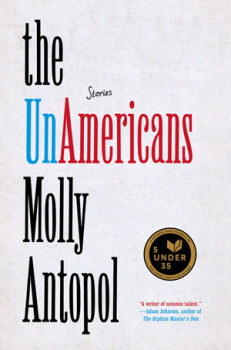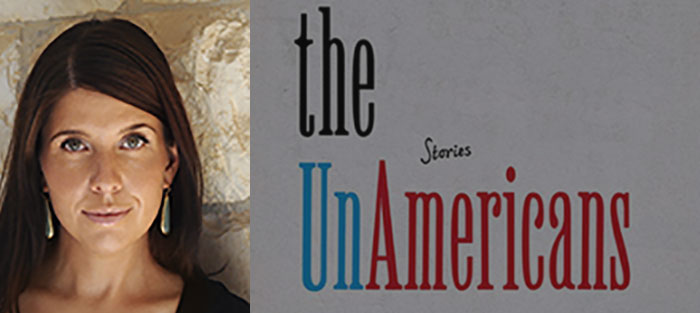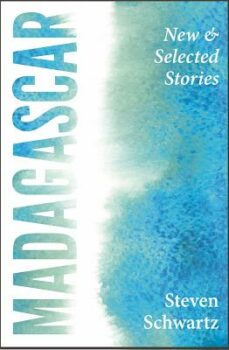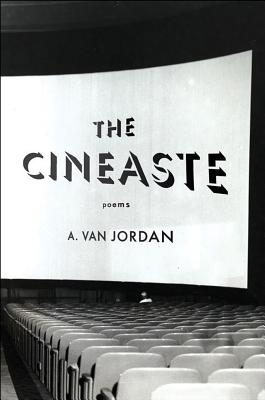Molly Antopol’s The UnAmericans is a long-awaited collection from one of our most exciting young short story writers. It’s a book of divided loyalties, the fractures between family, county, and, ultimately, the self. Ranging from 1950s Los Angeles to WWII’s Eastern front to current day Israel, The UnAmericans gives us a fantastic range of characters, all of whom are in some ways struggling with the personal costs of the political.
The Janus-faced ideologies of the mid Twentieth century—the Final Solution and the triumphant promise and betrayal of Communism—haunt the regular people who appear in these stories. Yet the book is wonderfully non-schematic. Antopol evokes the gripping ethical choices faced by her characters without a whiff of the morality play. This is a human book, and if any arguments are to be inferred they’re human arguments. Decisions have unexpected consequences, motivations are rarely pure, and the line between self-knowledge and self-justification is as thin as a hair.
Antopol is a graduate of the Columbia MFA and a former Stegner fellow at Stanford where she now teaches. She’s the recipient of many awards, including the National Book Award 5 Under 35. Her writing has appeared or is forthcoming on NPR’s This American Life and in One Story, Ecotone, Glimmer Train, American Short Fiction, Mississippi Review Prize Stories, Southern Humanities Review and elsewhere. She is also a writer-in-residence at the Summer Literary Seminars in Lithuania. The UnAmericans is her first book.
Interview
Scott Hutchins: We’ll spend the bulk of this interview talking about your brilliant debut collection, The UnAmericans, which Norton is releasing this month. But let’s start personal. When did you begin writing?
Molly Antopol: I don’t remember writing being a conscious decision. I was always a big reader, and kind of a goofy kid—my mom says on camping trips I’d sit in my tent all day and write myself into whatever book I was reading. But I didn’t see writing as something I could actually do as a career. Growing up, I didn’t know any writers and it felt to me like a pie-in-the-sky profession. I figured I’d sneak in time to write when I wasn’t working. When I was a kid I wanted to be a marine biologist, a zoologist, or a psychologist.
And yet you didn’t do zoology—you (like me and everybody else we know) got an MFA. Do you stand by that decision?
I went [to grad school] when I was young, just two years out of college. It took me nine more years after finishing my MFA to get my book where I wanted it to be. I spent my time in graduate school just learning how to write, and almost everything I worked on during that time is still hidden in a drawer. I went to Columbia because I couldn’t decide between an MFA and a Masters in Middle Eastern Studies, and Columbia had programs in both. So I did an MFA and took classes on the Middle East as electives. I had a great time in graduate school—I met some of my closest friends there—but if I could do it again, I would have spent more time out in the world first, living somewhere cheap and writing as much as I could, before going back into the classroom.
Your husband, Chanan Tigay, is a writer as well. I’m always interested in two-writer families. How do you negotiate for details and stories?
In the beginning I think we both worried about being in competition with each other, but at this point in our relationship, I can genuinely say that I was just as happy when he sold his book as when I sold mine. There’s nothing more humbling and inspiring than seeing a person you love work that hard, day in and day out, on a project that for years he had no idea whether anyone wanted to publish. It’s honestly pretty great being married to a writer—we’re each others’ first readers, we shout sentences and paragraphs we’ve just written across the apartment, and we totally get it if the other person’s on a deadline and hasn’t done the dishes for a week.
One of the things I love about your book is that it’s a true collection of stories (not a crypto-novel) that nevertheless feels greater than the sum of its parts. What do you consider the project of this collection?
Many of the stories were inspired by my family history, notably their involvement in the Communist Party, as well as my East European roots and connection to Israel, where I lived and worked for years. I come from a big family of storytellers, and the tales of surveillance, tapped lines, and dinnertime visits from the FBI that I’d grown up hearing informed many of these stories.
The first connotation that the word “Un-American” is likely to bring up for people is the Red Scare. But as I worked on more stories, I also became fascinated by the complicated meaning the word “Un-American” might have to this current generation of Israelis, forced to contend every day with their country’s messy and symbiotic relationship to America. I also kept thinking about this notion of “Un-American-ness” for my East European characters—dissidents and academics, banned artists and writers—who, after risking their lives for their politics in their mother countries, then have to reinvent their identities in the United States: a country where they’re treated as anything but American.
I wondered whether some people might have had a niggling feeling of nostalgia for that bleak time, simply because they held a significant place in it. For so many of my characters, their entire sense of self is shaped by their political work, and I wanted to explore how having lived under surveillance in Eastern Europe influences their lives once they immigrate to America, where they quickly realize that not only are they no longer being watched—they’re no longer being noticed.
So do you consider the Un-Americans a Jewish book?
I’ve heard a number of people say that Jews have become so assimilated that “Jewish fiction” should no longer exist as a separate category. Or that Jewish fiction is so mainstream as to render that term meaningless. That’s fascinating to me. In some ways I agree with it—the neighborhoods of Malamud’s Brooklyn, Ozick’s Manhattan, and Bellow’s Chicago are certainly no longer filled with Yiddish-speaking immigrants. And the work of Philip Roth, for example, is undeniably as American as it is Jewish. But what to make, then, of all the incredible fiction by young Russian-American Jews that seems so bent on understanding their relatives’ lives under the Soviet State, in addition to their own here in America? Or all of the Israeli fiction that, more and more each year, is being translated into English? And so many of my favorite contemporary Jewish writers—Edith Pearlman, David Bezmozgis, David Grossman, to list a few—seem as interested in the past as they are in the present. To me, the past feels inescapable. All of which is to say that yes, this is probably a Jewish book, whether I label it that way or not.
 In addition to Jewishness, another quality that stands out is the issue of gender. I was struck by how often your stories are told from a male perspective—five out of the eight, by my count. Was this conscious? Did you think, I’m going to tell this story from the point of view of a dude?
In addition to Jewishness, another quality that stands out is the issue of gender. I was struck by how often your stories are told from a male perspective—five out of the eight, by my count. Was this conscious? Did you think, I’m going to tell this story from the point of view of a dude?
No, I try not to think about things like point of view in early drafts. With all of my stories, I wanted to write from the perspective of whoever was in the most complicated place fictionally, largely because it’s so fascinating to watch them worm their way out of whatever hole they’ve dug for themselves. I also think it’s interesting to consider the distinction between a narrator and a central character—in many of these stories, the prominent character is a woman, and I found that I was able to access certain emotional truths by narrating the situation from a different vantage.
Similarly, the points of view of your narrators cover a wide spectrum—from teenager to individuals edging toward the grave. (Or, in the case of “My Grandmother Tells Me This Story,” an elderly narrator telling a story from her youth). They’re all spectacularly done. Did you set out to challenge yourself in this way?
Thank you! It was a challenge I set for myself. I wouldn’t let myself see the collection as finished until I felt I’d written convincingly from the perspectives of women and men, young and old, American, European and Israeli. There are a number of short story writers I really admire whose narrators oftentimes share the same gender/background (Lorrie Moore, Alice Munro, Junot Diaz, Matt Klam), but I knew that in a collection that looks at how people are shaped by large historical moments, I needed to try to explore those events from various perspectives.
More than anything, though, writing these stories felt like an exercise in empathy rather than intellect—I wanted to make myself care about and sympathize with people who oftentimes had behaved less than ethically.
To my mind the contemporary short story can suffer from “dazzling moment” syndrome, where we’re supposed to infer a life lived from the five, particular minutes we witness via sustained, microscopic examination. Yet in this collection your stories span time and take up time. They’re adventurous, bold, and sometimes long! What—at least for yourself—is a story? What are you trying to capture in a single story?
Honestly? An entire life. The stories I love most are the ones that feel novelistic in scope, where you can feel the writer pouring absolutely everything s/he has into the story, until there’s nothing left in them and they have to try to imagine an entirely new world.
When I first started writing, most of the models I read were these very lean and tightly controlled stories. So those were the types of stories I tried to write—spare and scene-based—even though they went against what came naturally to me. The truth is that I love backstory, I love the moment when I’m reading a story and there’s a space break after a scene and I suddenly get to learn all the dirt on the characters. It was only when I began to read longer stories—Deborah Eisenberg, Alice Munro, Edward P. Jones, and Edith Pearlman are a few of the writers I love most—that I understood what I really wanted to attempt in a story. One of the things I admire most in longer stories is the way writers can work with dead time and slower, more idle moments. I liked Jhumpa Lahiri’s collection of longer stories, Unaccustomed Earth, even more than her first because they felt so lived-in; the unhurried pacing of the stories made the endings even more shocking and resonant for me.
Like the work of most of those writers—especially Lahiri, Munro, and Jones—your stories are often about family. There’s sometimes a sense of the sins of the father being visited on the children—literally, in the “Unknown Soldier” and “Duck and Cover,” and more metaphorically in other stories, especially “Minor Heroics.”
These stories definitely felt to me more about family than anything else, in particular the dynamic between immigrant parents and their children: parents who find themselves in a country whose reality is so painfully different from their expectations; and their children, inheritors of so much political heaviness, who struggle both to honor these thwarted ideals and to navigate their own complicated lives.
Speaking of time and history, these stories feel effortlessly of their era, but I’m assuming you must have done a fair amount of research. Can you take us through an example?
The Israel stories didn’t require as much research since those are contemporary and I spend so much time there, and I began the McCarthy-era stories by talking to my family before turning to nonfiction accounts. But the Eastern Europe stories definitely required a ton of research. “My Grandmother Tells Me This Story,” for example, was first inspired by an elderly woman I met at a party while living in Israel. She was from the village of Antopol, Belarus, where my relatives had come from, and she’d known my family. Antopol was virtually destroyed during World War II, and it was a part of my family history I knew little about. The woman led me to an oral history book about the village, written in Hebrew, Yiddish, and English, which her son had put together—and that book planted the seeds for “My Grandmother Tells Me This Story.” After that, I read and watched every memoir and documentary I could find on the village, notably everything I could get my hands on about kids who had escaped the Nazis and joined partisan camps of guerilla fighters in the woods outside Antopol. I also did archival research, interviewed a number of people at partisan educational foundations, and traveled to Eastern Europe. My time in Lithuania was particularly helpful—I did a lot of research in museums and libraries, and, once I was pretty far along on the story, sat down with a scholar in Vilnius whose focus was on the lives of partisan girls.
I read more than a dozen memoirs on partisan life, and many of the writers remembered the exact same places and events in completely different ways—even details as basic as weather conditions, the kinds of weapons they had access to, and the types of food they scavenged while living in the forest. And many of those details contradicted the more journalistic texts I read. That brought up an interesting question for me: what’s the “truth” that fiction writers are ultimately searching for when researching? I’d always told myself that my job as a writer was to think about character first and foremost—but so many of the emotional truths in my characters’ lives are informed by the history and politics that surround them. And obviously another task for me is to do every bit of research I can so that all of the historical details in my stories are right—only, in subsequent drafts, to delete half of those details so that the research feels invisible and all the reader cares about are the characters. But when so much of the research doesn’t add up, it brings forth an important question on how to write accurately about moments in history remembered in so many different ways—and which accounts are ultimately the most truthful.
Finally, I’ll ask you the question I hate being asked myself: What are you working on next?
A novel, called The After Party. It’s set in Israel, Eastern Europe, and New York. But I’m superstitious about discussing a book-in-progress—I shouldn’t say anything else!






